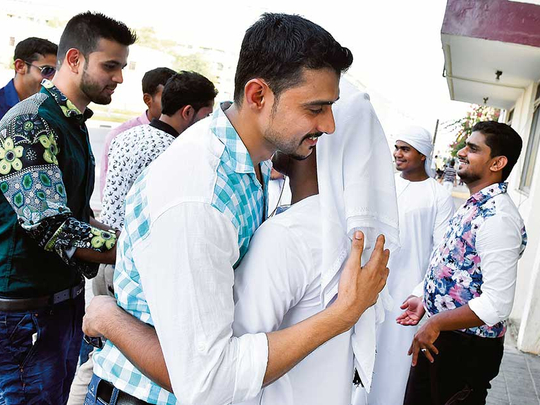
Eid Al Fitr is an important religious holiday that marks the end of Ramadan and is celebrated by Muslims all over the world. On this festive occasion, people usually buy new clothes, cook traditional food, greet and visit their families and neighbours, offer gifts and money to their younger relatives, go on picnics to public parks and beaches, arrange big parties and huge feasts ... and so on.
Unfortunately, Eid celebrations these days are often extravagant and cause pollution and harm to the environment. For instance, the community spaces, including parks and other places, are always left with a lot of litter and tonnes of waste after the celebrations. Many people also buy a lot of new clothes that they really do not need.
A quick look at some of the recent Eid holidays in the region reveals some interesting facts: In Cairo Zoo alone, authorities cleared 50 tonnes of waste after Eid Al Fitr last year. In Amman, sanitation workers collected more than 15,000 tonnes of household waste during the Eid Al Fitr holidays in 2014, according to the Greater Amman Municipality (Gam).
So, Eid Al Fitr, in many ways, is becoming an occasion for over-consumption that creates pollution and generates a lot of waste. Now is the time, therefore, to seize the opportunity and adopt exemplary behaviour in relation to the environment and hope that this responsible pro-environment lifestyle will be observed during Eid and continue all year round.
Islam advises balance and moderation in all matters. Extravagance is the opposite of moderation and results in crossing the proper limits of consumption of resources. The Quran warns believers against extravagance in eating and drinking. Allah says: “O children of Adam, take your adornment at every masjid, and eat and drink, but be not excessive. Indeed, He likes not those who commit excess.” (Al Araf: 31)
Thus, a true Muslim should do his best to celebrate and at the same time reduce his carbon footprint by consuming less, recycling and avoiding over-consumption.
A Muslim must not be extravagant in consumption, whether of food, clothes or natural resources. As cited in the Quran: “Eat and drink of that which Allah has provided and do not act corruptly, making mischief on the earth.” (Al Baqarah: 60)
The idea of “footprint” is already rooted in Islamic culture and values and there are many examples and verses in the Quran and Sunnah that urge Muslims to reduce their footprint and ask them to live lightly on earth. The Quran describes believers of Allah as those who “walk on the Earth in humility” (Quran, 25: 63)
Governments and local authorities also can play a key role in encouraging people towards environment-friendly behaviour during Eid. Among the ideas that can be implemented is encouragement to use more of public transportation to help reduce air pollution. The Dubai Roads and Transport Authority (RTA) had introduced a plan to reduce traffic congestion and pollution during the Eid Al Fitr holidays last year by offering 10 buses for free transit from the Dubai Mall to Dubai World Trade Centre. [This year too RTA has made elaborate plans to encourage people to use more public transport during the Eid holidays.]
In 2014, Abu Dhabi Police had warned the public against using or buying fireworks. According to Colonel Humaid Saeed Al Afreet, head of the firearms and explosives department at Abu Dhabi, “Fireworks can potentially cause physical damage as well as environment pollution.” Islam emphasises a peaceful, equal society. Extravagance goes against this principle of equality. If a Muslim wastes some resources by extravagance, he is directly wasting the right of others, of those who could have been satisfied by the wasted things, besides depriving the future generation as well.
While planning for the upcoming Eid Al Fitr celebrations, it is imperative that we think twice before buying food, clothing and other items in excess, keeping in mind the need to protect the environment. As people go to community parks and other holiday destinations, we must strictly avoid throwing litter around. Let us strive to celebrate Eid in an eco-friendly way by embracing a greener lifestyle and striving to incorporate sustainable practices.
Wishing you all an eco-friendly Eid Al Fitr!
Dr Mohamed Abdel Raouf is an independent environment researcher.











